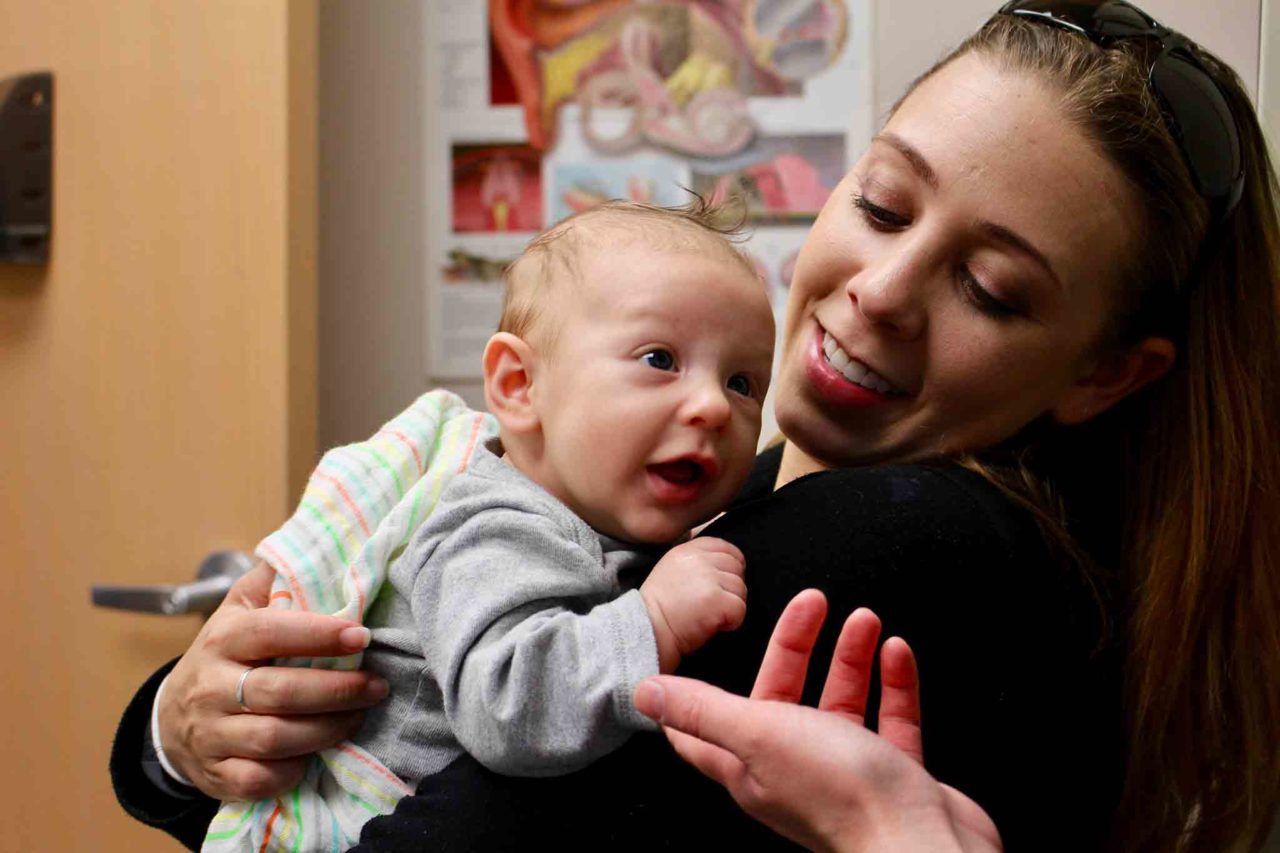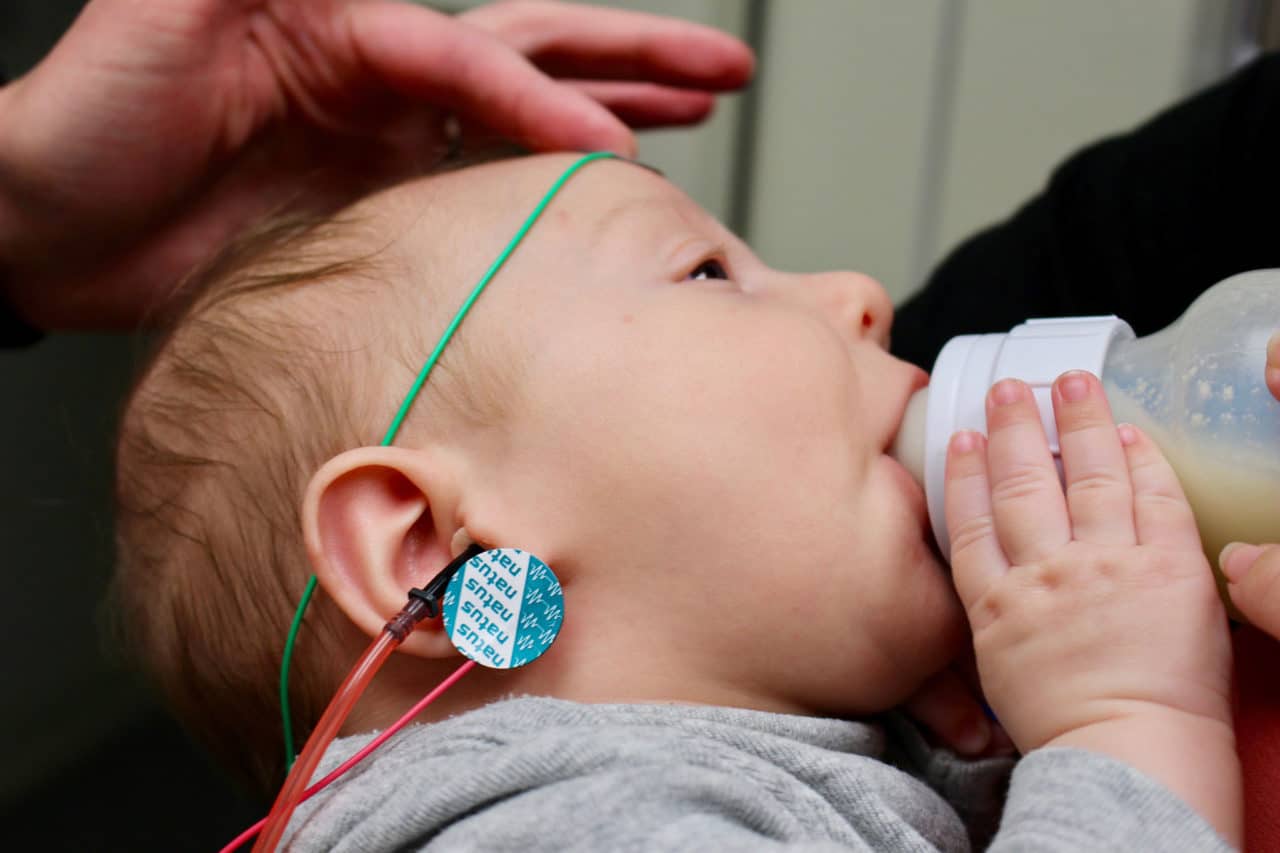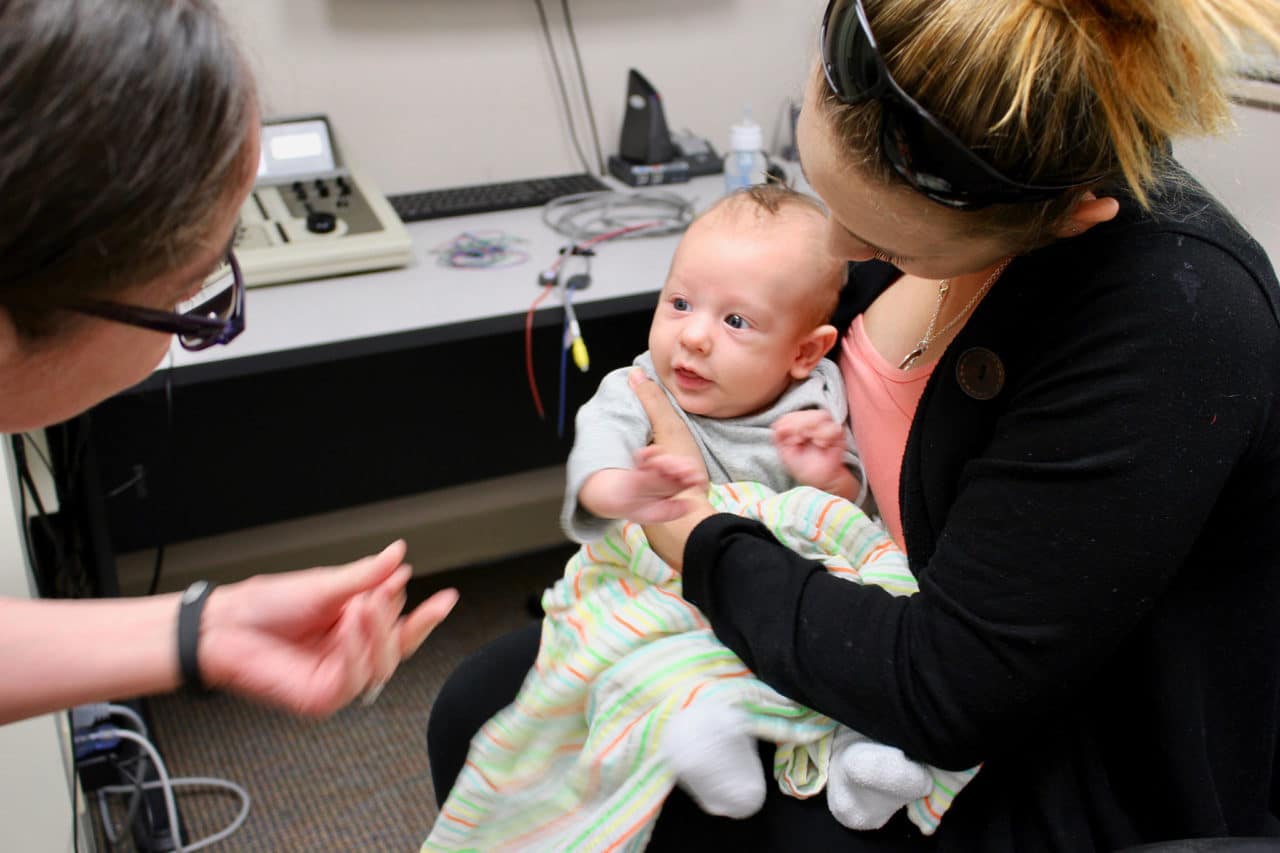EHDDI – Early Hearing Loss Detection, Diagnosis and Intervention Program

Hearing loss is the most common birth defect in children, affecting approximately three in 1,000 births. With this staggering number in mind, the Washington State Department of Health teamed up with Children’s Hospital and Regional Medical Center, and the Washington Chapter of the American Academy of Pediatrics to create a voluntary program to screen for newborn hearing loss in 2000. The program, Early Hearing Loss Detection, Diagnosis and Intervention Program, otherwise known as EHDDI, helps to diagnose, track, and treat children prior to their critical communication growth years.
At Evergreen Speech & Hearing Clinic we are proud to work with the EHDDI program to track infants that need hearing screenings along with follow up diagnostic services. Please take a look around to learn more about EHDDI testing and the importance of early pediatric detection, diagnosis and intervention.
Why it is Important to Diagnosis Hearing Loss at an Early Age
Hearing loss, when left undetected, can negatively impact academic achievements, social and emotional development, along with speech and language acquisition. Through early detection and intervention, a child won’t be left behind.
What Are the Risk Factors?

We have compiled a list of common risk factors for hearing loss. Please contact your physician or one of our clinics if you have any concerns about your child.
- A congenital infection
- Bacterial meningitis
- Chronic middle ear problems
- Conditions/Syndromes associated with hearing loss
- Craniofacial anomalies
- Exposure to ototoxic medications
- Extended stay in NICU – more than 48 hours
- Family history of hearing loss
- Parent or caregiver concern about hearing, speech, language, or development
- Infections during pregnancy such as CMV, herpes, German measles, syphilis and toxoplasmosis
- Low birth weight – less than 1500 grams
- Mechanical ventilation for more than 5 days
- Neurologic diseases such as Hunter syndrome, Freidrich’s ataxia, Charco-Marie-Tooth syndrome
- Problems at birth including jaundice or breathing problems
- Severe hyperbillirubinemia requiring exchange transfusions
- Trauma to the head
What Does the EHDDI Program Consist of?

The EHDDI Program was created with one goal in mind, to screen ALL newborns in Washington State for hearing loss. Over the years the mission of the program has grown and now extends to achieving diagnostic audiological evaluations for children under 3 months of age, and if necessary enrolling children into early intervention services by six months of age.
More information on the Washington State EHDDI Program can be found on these websites:
Newborn Hearing Screening
Washington State Department of Health